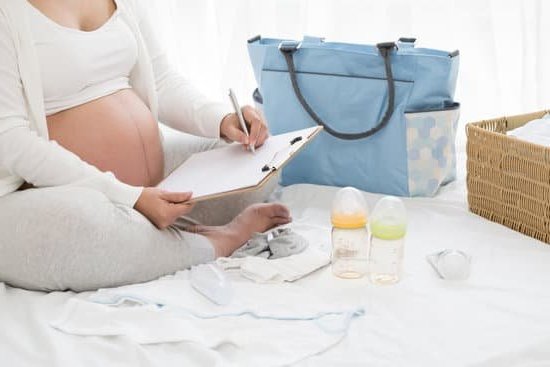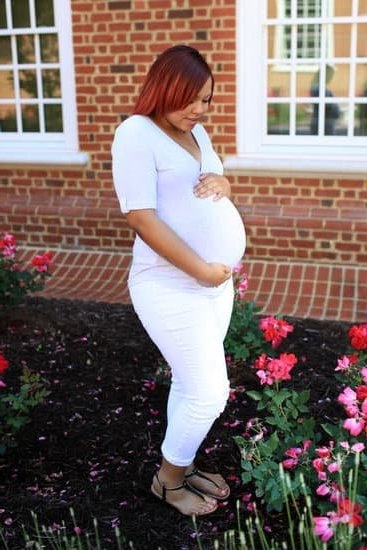How long is the cat pregnancy? The gestation period for a cat can range from 63 to 67 days. Understanding the cat pregnancy process is important for providing proper care and support to your furry feline friend during this crucial time. From recognizing the signs and symptoms of a pregnant cat to preparing for labor and delivery, there are many aspects to consider when your cat is expecting.
During the course of a cat’s pregnancy, there are three distinct stages that each come with their own set of developments and changes. Being aware of these stages can help you better anticipate and address the evolving needs of your pregnant cat. In addition, providing proper nutrition and comfort, as well as knowing what to expect during labor and delivery, are all essential components of caring for a pregnant cat.
In this article, we will delve into the various aspects of cat pregnancy, including recognizing the signs of pregnancy, understanding the gestation period, meeting nutritional needs, offering comfort and care, preparing for labor and delivery, as well as providing postpartum care for both the mother cat and her kittens. By gaining a comprehensive understanding of the cat pregnancy process, you can ensure that your beloved pet receives the attention and support she needs during this miraculous time.
Signs and Symptoms of a Pregnant Cat
When a cat becomes pregnant, there are several signs and symptoms that may indicate she is expecting. It’s important for pet owners to be aware of these signs so they can provide proper care and support for their pregnant feline friend.
Some common signs of a pregnant cat include:
- Changes in behavior
- Increased affection
- Swollen and pink nipples
- Weight gain
- Nesting behavior
Additionally, there are certain symptoms that might also be present in a pregnant cat. These can include:
- Vomiting and morning sickness
- Increased appetite
- Abdominal enlargement
- Lethargy or fatigue
If you notice any combination of these signs and symptoms in your female cat, it’s advisable to consult with a veterinarian to confirm the pregnancy and receive guidance on how best to proceed with her care. These early indicators can also help prepare pet owners for the upcoming changes and responsibilities associated with having a pregnant cat.
Understanding the signs and symptoms of pregnancy in cats is vital for providing the necessary care and attention to ensure the health and well-being of both the mother cat and her future kittens. This knowledge will also help pet owners prepare for the next stages of cat pregnancy, including understanding how long is the cat pregnancy period.
The Three Stages of Cat Pregnancy
The first stage of cat pregnancy is the initial few weeks after conception. During this time, the fertilized eggs travel through the mother’s reproductive system and eventually implant in the uterus. This stage can last for around 2-3 weeks, and during this time, there may not be any visible signs of pregnancy.
The second stage of cat pregnancy is when physical changes become more noticeable. This stage typically lasts for around 30-35 days and is when the mother’s abdomen begins to enlarge as the kittens continue to develop. It’s also during this stage that a veterinarian can confirm the pregnancy through ultrasound or palpation.
The third and final stage of cat pregnancy is the last 2-3 weeks before delivery. The mother cat will begin seeking out a quiet and secluded nesting area in preparation for giving birth. During this time, it’s important to provide her with a comfortable space where she can safely deliver her kittens. This final stage is critical for ensuring the health and well-being of both the mother and her future litter of kittens.
| Stage | Duration |
|---|---|
| Stage 1 | 2-3 weeks |
| Stage 2 | 30-35 days |
| Stage 3 | Last 2-3 weeks before delivery |
How Long Is the Cat Pregnancy
The gestation period, or the length of time a cat is pregnant, is an essential factor to consider for cat owners. Knowing how long a cat pregnancy lasts allows pet owners to prepare for the arrival of kittens and ensure proper care for the mother cat throughout her pregnancy. Unlike other animals, felines have a relatively short gestation period.
The average length of a cat pregnancy is approximately 63-65 days. However, this can vary depending on various factors such as breed, age, and overall health of the mother cat. It is important to keep in mind that this is just an estimate and some cats may give birth before or after this timeframe. Keeping track of your cat’s mating dates and consulting with a veterinarian can help determine a more accurate due date.
During the gestation period, it’s crucial to provide the pregnant cat with proper nutrition, regular veterinary check-ups, and a comfortable environment for her to rest and prepare for labor. Understanding how long the cat pregnancy lasts also helps pet owners anticipate when labor may begin, allowing them to be prepared for the arrival of kittens. Monitoring the pregnant cat closely during this time will ensure that she receives all necessary care and support leading up to delivery.
Nutritional Needs During Cat Pregnancy
Quality Diet and Nutrient Requirements
During pregnancy, a cat’s nutritional requirements change significantly. It is essential to provide a high-quality diet that is specifically formulated for pregnant or lactating cats. Look for cat food that is rich in essential nutrients such as protein, calcium, and phosphorus, as well as vitamins and minerals. These nutrients are crucial for the healthy development of the kittens and for supporting the energy needs of the mother cat during this critical time.
Feeding Schedule and Portions
As the pregnancy progresses, it’s important to monitor your cat’s weight gain and adjust her food portions accordingly. Most experts recommend feeding pregnant cats smaller, more frequent meals throughout the day to accommodate their increased energy needs. It is also important to consult with a veterinarian about your specific cat’s nutritional requirements during pregnancy.
Additional Nutritional Support
In some cases, your veterinarian may recommend adding supplements to your pregnant cat’s diet. Omega-3 fatty acids, such as DHA, may be beneficial for brain and vision development in fetal kittens. However, it is crucial to seek professional advice before introducing any supplements into your cat’s diet during pregnancy.
By providing proper nutrition and meeting your cat’s specific dietary needs during pregnancy, you can help support a healthy and successful gestation period for both the mother cat and her precious offspring.
Providing Proper Care and Comfort for a Pregnant Cat
Regular Veterinary Care
During pregnancy, it’s important to schedule regular check-ups with a veterinarian to monitor the health and development of the pregnant cat. The vet can provide essential guidance on nutrition, exercise, and any necessary vaccinations or treatments.
Proper Nutrition
A pregnant cat has unique nutritional needs to support her own health as well as the growth of her unborn kittens. High-quality, balanced food formulated for pregnant or nursing cats is recommended. Additionally, supplemental vitamins or minerals may be advised by a veterinarian.
Environmental Considerations
Creating a comfortable and stress-free environment for the expectant mother is crucial. Provide a quiet, safe space where she can rest undisturbed. Ensure she has access to clean water at all times and ample opportunities for gentle exercise.
By addressing these key aspects of care, pet owners can help their pregnant cats feel comfortable and supported throughout their pregnancies. Observing proper care not only promotes the health of the mother but also contributes to the healthy development of her kittens.routine veterinary care, proper nutrition, and environmental considerations are key components in providing proper care and comfort for a pregnant cat.
What to Expect During Labor and Delivery
As a cat owner, it is important to understand the signs of labor in your pregnant cat so you can provide her with the proper care and support during this crucial time. The gestation period for a cat usually lasts between 63 to 65 days, but this can vary depending on various factors such as the breed of the cat and the number of kittens she is carrying.
It is essential to be prepared for the arrival of the kittens by creating a comfortable and quiet space for your cat to give birth.
During labor, you may notice that your cat becomes restless, vocalizes more than usual, or seeks out a secluded area to nest. As her contractions begin, she may appear anxious or constantly lick her genital area. These are all normal behaviors as she prepares to deliver her kittens. Providing a warm and quiet environment during labor is crucial, as loud noises and disturbances can cause stress for your cat.
Once active labor begins, you will see visible contractions as your cat works to deliver each kitten. The process can take several hours, with each kitten being born approximately 15-30 minutes apart. It is important to monitor the progress of labor and make sure that each kitten is delivered safely. In some cases, if labor stalls or if there are any complications, it is critical to seek veterinary assistance immediately.
| Category | Data |
|---|---|
| Gestation Period | 63-65 days |
| Kitten Birth Interval | 15-30 minutes apart |
| Labor Duration | Several hours |
Postpartum Care for the Mother Cat and Kittens
After the mother cat gives birth, it is crucial to provide proper postpartum care for both the mother and her kittens. The postpartum period is a critical time for the mother cat as she recovers from giving birth and begins to nurse and care for her newborn kittens. During this time, it is essential to monitor the health and well-being of the mother cat and her kittens while providing them with a safe and comfortable environment.
One important aspect of postpartum care for the mother cat is ensuring that she receives proper nutrition. Nursing mother cats have increased nutritional needs, so it is important to provide them with high-quality kitten food or special nursing diets to support their milk production and overall health. Additionally, it is important to make sure that the mother cat has access to fresh water at all times to stay hydrated.
Another crucial aspect of postpartum care for a mother cat is monitoring her physical and emotional well-being. It is important to keep an eye on the mother cat for any signs of illness or discomfort, such as loss of appetite, lethargy, or discharge. Providing a comfortable and quiet space for the mother cat where she can nurse and care for her kittens without stress or disturbances is also essential for her recovery during this time.
The postpartum period is also a critical time for the newborn kittens. They rely entirely on their mother’s milk for nourishment during the first few weeks of life. It is important to monitor the kittens’ weight gain and ensure that they are nursing properly. Additionally, keeping the environment clean and warm for the newborn kittens will help promote their health and well-being during this fragile stage of development.
Conclusion
In conclusion, the journey of cat pregnancy is nothing short of a miracle. From the signs and symptoms of a pregnant cat to the three stages of pregnancy, and finally to labor, delivery, and postpartum care, each stage is filled with wonder and excitement. Throughout this process, it’s important for cat owners to provide proper care and comfort for their pregnant feline companions.
Understanding how long is the cat pregnancy is crucial in ensuring that the mother cat receives the necessary support and care during this time. The gestation period for cats typically lasts around 63-65 days, although this can vary slightly depending on factors such as breed and individual health. Being aware of the length of time can help owners prepare for the arrival of new kittens and anticipate their needs.
As we celebrate the miracle of cat pregnancy and birth, it’s important to remember that each feline mother has her own unique experience. Providing a nutritious diet, comfortable environment, and regular veterinarian check-ups are essential for ensuring a healthy pregnancy and successful delivery. By recognizing the beauty of this natural process and providing loving support, cat owners can truly appreciate the wonder of bringing new life into the world.
Frequently Asked Questions
How Many Months Is a Cat Pregnant?
A cat is pregnant for approximately 9 weeks, which is equivalent to 63 days. It’s important to keep track of when the mating occurred to estimate the due date accurately.
How Can I Tell How Far Pregnant My Cat Is?
To determine how far along your cat is in her pregnancy, you can gently feel her abdomen for any noticeable changes. Additionally, a visit to the vet for an ultrasound or X-ray can provide a more precise timeframe.
How Long After a Cat Starts Showing Will She Give Birth?
After a cat starts showing visible signs of pregnancy, she will typically give birth within 6-7 weeks. It’s important to monitor her closely during this time and make sure she has a comfortable and safe environment ready for labor and delivery.

Welcome to my fertility blog. This is a space where I will be sharing my experiences as I navigate through the world of fertility treatments, as well as provide information and resources about fertility and pregnancy.





